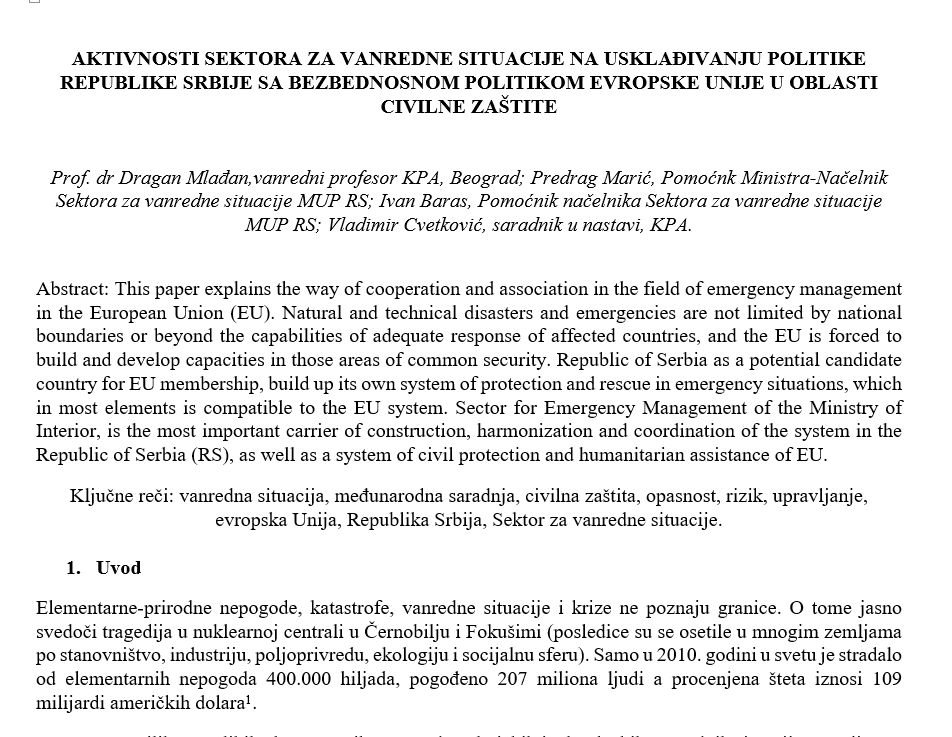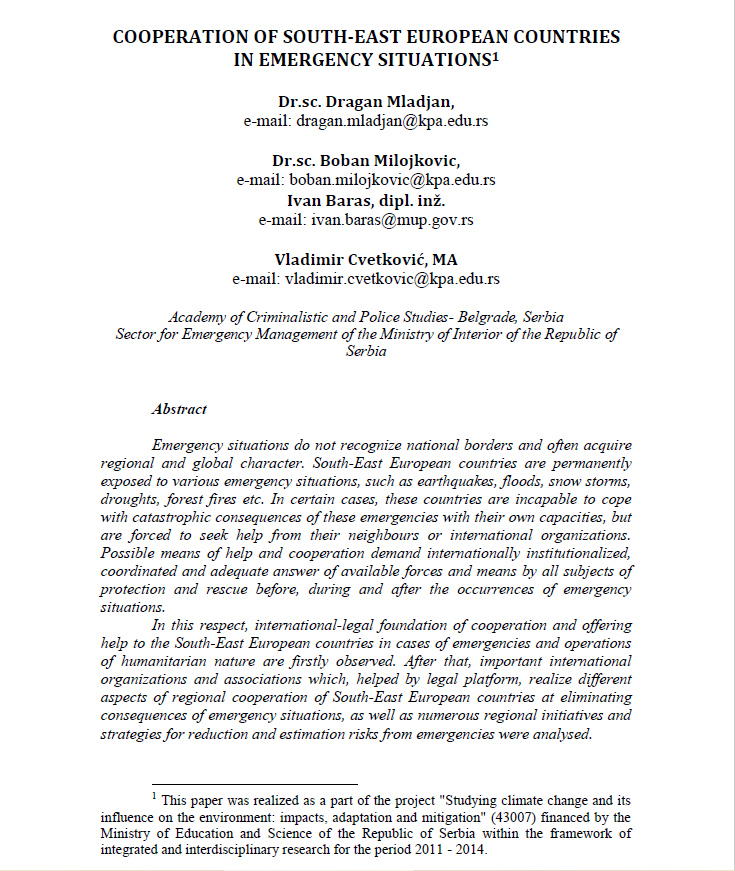Aktivnosti Sektora za vanredne situacije na usklađivanju politike Republike Srbije sa bezbednosnom politikom EU
Mlađan, D., Marić, P., Baras, I., & Cvetković, V. (2011). Aktivnosti Sektora za vanredne situacije na usklađivanju politike Republike Srbije sa bezbednosnom politikom EU [Activities of the Sector for Emergency Situations in harmonizing Serbian policy with the EU security policy]. Usklađivanje spoljne politike Srbije sa bezbednosnom politikom EU (pp. 479–492). Beograd: Institut za međunarodnu politiku i privredu. AKTIVNOSTI SEKTORA ZA VANREDNE SITUACIJE NA USKLAĐIVANJU POLITIKE REPUBLIKE SRBIJE SA BEZBEDNOSNOM POLITIKOM EVROPSKE UNIJE U OBLASTI CIVILNE ZAŠTITE Prof. dr Dragan Mlađan,vanredni profesor KPA, Beograd; Predrag Marić, Pomoćnk Ministra-Načelnik Sektora za vanredne situacije MUP RS; Ivan Baras, Pomoćnik načelnika Sektora za vanredne situacije MUP RS; Vladimir Cvetković, saradnik u nastavi, KPA. Abstract: This paper explains the way of cooperation and association in the field of emergency management in the European Union (EU). Natural and technical disasters and emergencies are not limited by national boundaries or beyond the capabilities of adequate response of affected countries, and the EU is forced to build and develop capacities in those areas of common security. Republic of Serbia as a potential candidate country for EU membership, build up its own system of protection and rescue in emergency situations, which in most elements is compatible to the EU system. Sector for Emergency Management of the Ministry of Interior, is the most important carrier of construction, harmonization and coordination of the system in the Republic of Serbia (RS), as well as a system of civil protection and humanitarian assistance of EU. Ključne reči: vanredna situacija, međunarodna saradnja, civilna zaštita, opasnost, rizik, upravljanje, evropska Unija, Republika Srbija, Sektor za vanredne situacije. Uvod Elementarne-prirodne nepogode, katastrofe, vanredne situacije i krize ne poznaju granice. O tome jasno svedoči tragedija u nuklearnoj centrali u Černobilju i Fokušimi (posledice su se osetile u mnogim zemljama po stanovništvo, industriju, poljoprivredu, ekologiju i […]
Read more
